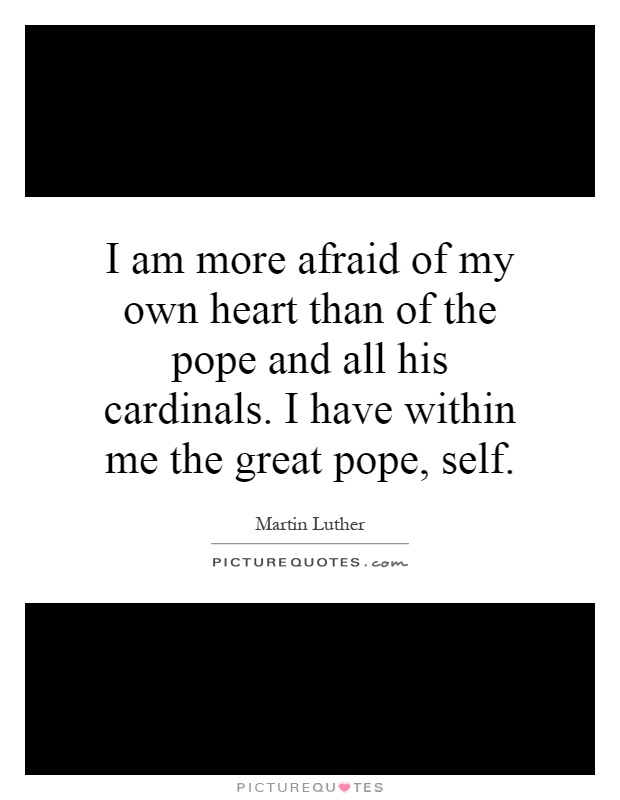I am more afraid of my own heart than of the pope and all his cardinals. I have within me the great pope, self

I am more afraid of my own heart than of the pope and all his cardinals. I have within me the great pope, self
Martin Luther, the famous German theologian and key figure in the Protestant Reformation, is often quoted as saying, “I am more afraid of my own heart than of the pope and all his cardinals. I have within me the great pope, self.” This statement reflects Luther’s deep understanding of the human condition and his belief in the importance of self-reflection and personal responsibility.Luther’s fear of his own heart can be seen as a recognition of the inherent sinfulness and fallibility of human nature. He understood that even the most devout and righteous individuals are capable of succumbing to temptation and straying from the path of righteousness. In Luther’s view, the greatest threat to one’s spiritual well-being is not external forces such as the pope or the church hierarchy, but rather the internal struggle between one’s own desires and the teachings of God.
By acknowledging the presence of the “great pope, self” within him, Luther was highlighting the importance of self-awareness and self-control in the pursuit of spiritual growth. He believed that true faith and piety could only be achieved through a deep understanding of one’s own weaknesses and a constant effort to overcome them. In this sense, Luther’s statement can be seen as a call to personal accountability and a reminder that each individual is ultimately responsible for their own salvation.
Luther’s emphasis on the importance of the individual conscience and personal relationship with God was a radical departure from the prevailing beliefs of his time. In the Catholic Church of the 16th century, the pope and the clergy held immense power and authority over the spiritual lives of the faithful. Luther’s rejection of this hierarchical structure in favor of a more personal and direct connection to God laid the foundation for the Protestant movement and forever changed the course of Christian history.












 Friendship Quotes
Friendship Quotes Love Quotes
Love Quotes Life Quotes
Life Quotes Funny Quotes
Funny Quotes Motivational Quotes
Motivational Quotes Inspirational Quotes
Inspirational Quotes